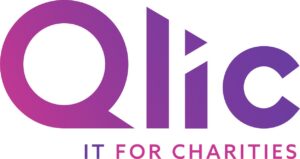In our increasingly digital world, data protection has become a fundamental concern for all sectors. With charities managing an abundance of sensitive information, from donor details to beneficiary records, it’s paramount that organisations prioritise data security. This is to ensure that they are GDPR compliant, meaning that they adhere to General Data Protection Regulations.
As a charity, it is your legal obligation to protect the data you collect and store. This not only safeguards the reputation and trustworthiness of the organisation but also ensures the privacy and security of donors and beneficiaries. The consequences of failing to secure data can be severe, including financial penalties, reputational damage, and even loss of donor trust.
In this blog, we will discuss the top five data protection guidelines for charities to follow in order to maintain compliance and ensure the highest level of data security.

Understanding Data Protection for Charities
Data protection involves safeguarding personal and sensitive data that organisations collect, store, and process. For charities, this could include information about donors, beneficiaries, employees, volunteers, and anyone else they may interact with. For charities, ensuring data protection is not just about maintaining their reputation and trust with stakeholders, but it’s also a legal obligation.
The legal and regulatory landscape for data protection in the UK is primarily governed by the General Data Protection Regulation (GDPR). GDPR requires organisations to protect the personal data and privacy of EU citizens for transactions that occur within EU member states.
Moreover, GDPR requires charities to be transparent about how they use data. They must provide clear notices to individuals about how their data will be used when it is collected. This is why data protection and charities is such a vital issue. The transparency it requires helps to build trust with donors, beneficiaries and other stakeholders.
Data protection for charities is an ongoing process. A good charity regularly and systematically monitors their guidelines, trains staff and volunteers and implements robust data security measures. They would also have a clear response strategy to data breaches.

The Top 5 Data Protection Guidelines
Data protection is a crucial responsibility for charities. Here are the top five data protection guidelines that every charity should adhere to:
1. Data Minimisation
Data minimisation is a core principle of GDPR. This involves collecting and storing only the necessary data. This approach significantly enhances cyber security for charities and ensures compliance with data protection laws. According to the Information Commissioner’s Office (ICO), data minimisation means that personal data collected should be adequate, relevant, and limited to what is necessary for the purposes for which they are processed.
2. Consent and Transparency
Obtaining clear and informed consent from donors and beneficiaries is important. Charities must also be transparent about how this data will be used. This is to make sure that there is a lawful basis for processing of personal data being collected. This can be done through privacy notices, data protection statements, or consent forms. These documents should detail what data is being collected, why it is being collected, and how it will be used. You should also document processing activities so that you have a record of how and where GDPR applies to your data handling.
3. Security Measures
Implementing robust security measures is a critical step in data protection. These measures may include encryption, access controls, and security audits. This helps protect data from charity cyber attacks and unauthorised access. It also ensures the safety and integrity of personal credentials.
4. Data Retention and Erasure
Charities should retain data only for as long as necessary. Once the data is no longer needed, it should be securely erased. Implementing clear data retention and erasing data policies can help ensure compliance with GDPR requirements.
5. Data Access and Accountability
Make sure to assign responsibility for data protection. This includes appointing data processors, implementing data access controls and regularly auditing compliance. The role of a Data Protection Officer (DPO) is to oversee the charity’s data protection strategy and ensure compliance with GDPR requirements.

Final Thoughts
Data protection is a crucial aspect of a charity’s integrity and public trust. These regulations ensure that personal data from donors, beneficiaries, volunteers, and others, are handled with the utmost respect and security.
Charities thrive on the trust of their supporters. Achieving GDPR compliance is both a legal necessity and an important way of reassuring supporters that their data is safe. Any breach of data protection regulations could result in a significant loss of support and goodwill. This could impact donations, volunteerism, and overall engagement with the charity. Non-compliance with data protection laws could also expose charities to legal action from those affected by a data breach.
In conclusion, adhering to data protection laws is not just about avoiding penalties. It’s about preserving the trust of your charity supporters and adhering to the GDPR regulations. Charities that prioritise data protection are actively upholding their duty of care to all stakeholders. This helps to ensure their sustainability and long term success
Free IT Consultation
Are you looking for a trustworthy IT solutions specialist to keep your charity’s data secure? Book your free Cyber Security Consultation below.






